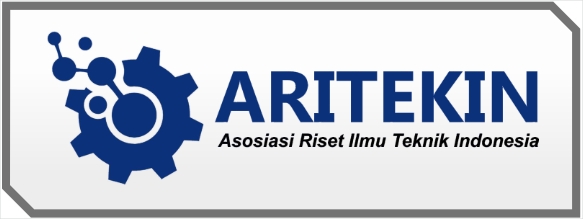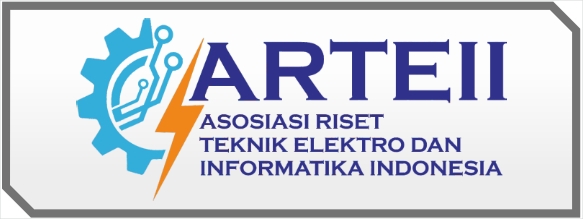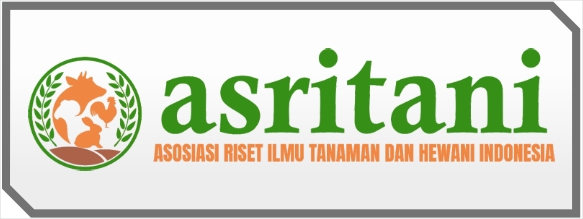Pengaruh Gaya Belajar Terhadap Kinerja Akademis: Studi Empiris Tentang Mahasiswa/i Agribisnis Universitas Sultan Ageng Tirtayasa
DOI:
https://doi.org/10.59581/jtpip-widyakarya.v1i4.1471Keywords:
GPA, Learning Style, Chi-square, Technical, Association RelationshipAbstract
Cumulative Grade Point Average (GPA) is used as the final assessmen of graduates learning outcomes at the end of the study program. Factors that can influence the differences in learning achievement between each student can be categorized as internal factors and external factors. In this research, emphasis will be given to internal factors related to learning styles. Learning style is a characteristic possessed by individual in acquiring, organizing, and processing received information. The aim of this study is to examine the association between student learning styles and the Cumulative Grade Point Average (GPA). The sampling technique in this study is total sampling, and the method used in this study was the chi-square test of independence as the statistical method, and field study for data collection and analysis. The data used in this study was obtained from students of the Agribusiness Department at the Faculty of Agriculture, Sultan Ageng Tirtayasa University. The data collection technique used in this research is a questionnaire in which respondents are given the choice of GPA level above 3.5 or below 3.5, and also learning styles with the levels of learn by seeing, learn by hearing, learn by reading/writing, or learn by doing, which are disseminated through social media and analyzed to draw conclusions. In this study, a total of 67 respondents were collected. Based on the processed and analyzed data, the result of H0 is not rejected, and it can be concluded that there is no association between learning styles and GPA produced.
References
Hardiansyah, H., & Hardian, H., 2014. Pengaruh Gaya Belajar terhadap Prestasi Akademik Mahasiswa Fakultas Kedokteran.
Himmah, F. I. & Nugraheni, N. (2023). Analisis Gaya Belajar untuk Pembelajaran Berdiferensiasi. Jurnal Riset Pendidikan Dasar, 4.
Mufarrikoh, Z. (2019). Statistika Pendidikan (Konsep Sampling dan Uji Hipotesis). Jakad Media Publishing.
Mwasalwiba, E.S. (2010). Pendidikan Kewirausahaan: Tinjauan terhadap Tujuan, Metode Pengajaran, dan Indikator Dampaknya. Pendidikan+ pelatihan, 52 (1), 20-47.
Papiliya, J. O. & Huliselan, N. (2016). Indentifikasi Gaya Belajar Mahasiswa. Jurnal Psikolog Undip, 15(1), 56-63.
Pashler, H., McDaniel, M., Rohrer, D., & Bjork, R. (2008). Gaya belajar: Konsep dan Bukti. Ilmu Psikologi untuk Kepentingan Umum, 9 (3), 105-119.
Rahmawati, E., Saputra, O., & Saftarina, F. (2018). Hubungan Gaya Belajar terhadap Indeks Prestasi Kumulatif (IPK) Mahasiswa Fakultas Kedokteran Universitas Lampung. Jurnal Medula, 8(1), 7-11.
Rosmani., Jamaluddin., Fitriani., & Sudirman, P. (2022). Hubungan Penampilan dan Gaya Mengajar Guru Pendidikan Agama Islam terhadap Motivasi Belajar Peserta Didik di SMPN 23 Sinjai. Jurnal Imtiyaz.
Sari, N. & Sartika, S. B., 2021. Korelasi Gaya Belajar dengan Hasil Belajar Kognitif pada Mata Pelajaran IPA SMP. Lensa (Lentera Sains): Jurnal Pendidikan IPA, 11(1), 1-7.
Suyono, Akhmad. (2018). Pengaruh Gaya Belajar Terhadap hasil Belajar Pada Mata Pelajaran Akuntani Kelas XI IPS SMAN 3 Tapung Tahun Ajaran 2017/2018. Jurnal Pendidikan Ekonomi Akuntansi FKIP UIR Vol 6 No 1 Tahun 2018 P- ISSN: 2337-652x | E-ISSN: 2598-3253
Zebua, Yelisman. (2021). Kesiapan Pelaksanaan Praktik Kerja Industri Program Studi Pendidikan Teknik Bangunan Ikip Gunungsitoli. Jurnal JRRP.
Solihah, Siti., Leni Sri Mulyani., & Chevi Ardiana. (2020). Analisis Gaya Belajar Siswa Berdasarkan Visual, Auditori, Kinestetik pada Mata Pelajaran Biologi MAN 1 Garut. Jurnal Kehumasan.
Sugiyanto. (2000). Keterbatasan Uji Signifikansi: Ilustrasi Pada Analisis Kolerasi 2 Variabel. Buuletin Psikolog.
Novianti, Dewi., & Nurviani. (2019). Uji Kebebasan Nilai error Model AR(1) Pada Data harga Saham. Jurnal Gamma-Pi.
Wibowo, Ari. Uji Chi-Square pada Statistika SPSS. Jurnal Ilmiah SINUS.
Downloads
Published
How to Cite
Issue
Section
License
Copyright (c) 2023 Albert Donatus Simarmata, Siti Nurmaelani, Aenur Rohimah, Ila Susilawati, Nida Alya Zain

This work is licensed under a Creative Commons Attribution-ShareAlike 4.0 International License.














